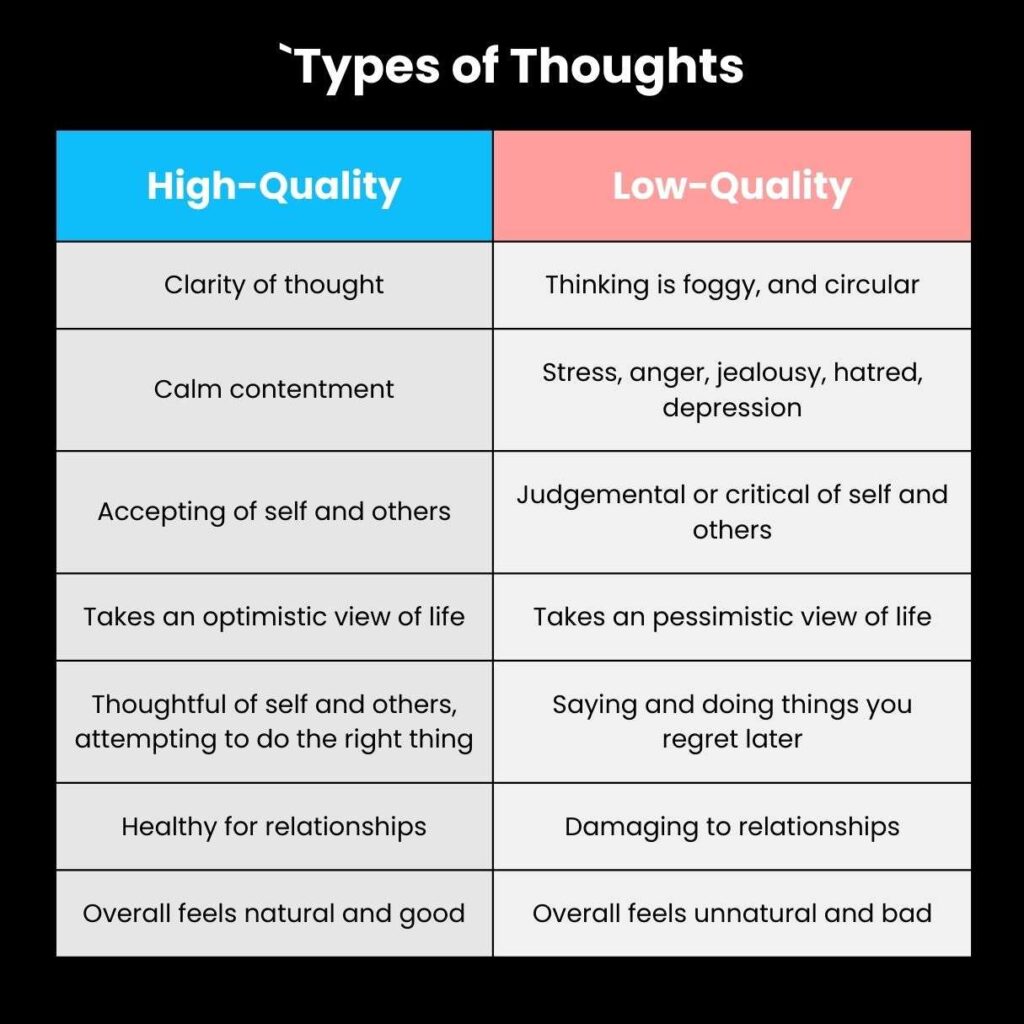In this article, I will give you 13 powerful stoic quotes that will make your life significantly better if you understand their message and take them to heart.
These quotations have been specifically selected as I think they offer the most value.
I’ve recently been reading Ryan Holiday’s Daily Stoic, and I enjoy the way that he breaks down every quotation.
In this blog, I want to somewhat emulate him in my way.
With each of the 13 stoic quotations, I have included an explanation.
Stoic Quotation #1
“The best revenge is to be unlike him who performed the injury.”
Marcus Aurelius, Meditations, 6.6
Explanation and Examples
It may seem tempting to hurt someone back after he or she has hurt you, but is it the right way to move forward?
Usually not.
A typical situation where you may encounter might involve a partner cheating on you, or intentionally doing something to annoy you.
You need to express directly and clearly to your partner that boundaries have been crossed.
However, many people may instead, rather than focus on communicating with the person, engage in behaviour that crosses their boundaries.
For instance, they may cheat on their partner out of spite.
None of these reactions will produce a good outcome. It will only present you as weak, hypocritical, and immature.
Stoic Quotation #2
“Be tolerant with others and strict with yourself.”
Marcus Aurelius, Meditations, 5.9
Explanation and Examples
I love this quotation, as it is short and simple. It is, however, powerful when you understand the implications.
Tolerance of other people, emphasises how important it is for the stoic to realise that other people are not within their control.
We cannot change the way people are, and our main focus should be our development.
Being strict with yourself implies that it is extremely important for you to develop boundaries for your actions and thoughts.
In my own life, an example of how I try to live this philosophy is that I do not drink alcohol regularly. I cannot control other people’s drinking, but I have the power to say no.
Controlling other people is also negative because “control” implies a degree of ownership. It is, partially this unhealthy dynamic that leads to domestic abuse and other terrible outcomes in relationships.
Stoic Quotation #3
“It is a rough road that leads to the heights of greatness.”
Seneca, Letters to Lucilius, 2.4
Explanation and Examples
This quotation expresses how success is often difficult to achieve.
I often need to remind myself of this. In running my own business, I know that sometimes the road in business can be really difficult, and can make you want to throw in the towel.
I know that I have, at times, struggled to sleep, felt overwhelmed by the litany of tasks, and felt stress from dealing with difficult people.
This lesson also applies to personal relationships. All aspects of life can have challenges, and you need to be resilient in difficult situations.
Coming prepared for anything understanding that it will be a “rough road” helps you ensure that you are fully prepared for any challenges that await you.
Stoic Quotation #4
“If a man knows not to which port he sails, no wind is favourable.”
Seneca, Letters to Lucilius, 24.7
Explanation and Examples
Having a direction in life is important. Seneca is emphasising the importance of goal setting in this quotation.
I have not always set goals in my life. Sometimes this lack of goal setting gave me a somewhat “hopeless feeling”. Life would be a wind that battered me, and I felt a lack of control over myself and my actions.
Recently, I have spent a lot of time thinking about the goals that I want to achieve in life, and this has helped me discover a sense of satisfaction in my life.
Even if I do not reach my direction, the fact that I set on course with the right intention, makes the journey feel less uncertain and less perilous.
Stoic Quotation #5
“The happiness of your life depends upon the quality of your thoughts.”
Marcus Aurelius, Meditations, 4.3
Explanation and Examples
This quotation is again a mysterious one. What does Marcus Aurelius mean by the quality of your thoughts?
\What thoughts are good quality and what thoughts are bad quality?
Well, in the most basic sense, a good quality thought is beneficial to you, and for those around you. A bad-quality thought is the opposite.
I did some research into the particular characteristics of good and bad-quality thoughts, and I came across this article.
The graphic below summarises the findings:

I’ve got to admit, I am still on the growth journey of attempting to improve the quality of my thoughts and feelings.
I will certainly write a blog on this point, as I believe this quotation to be the most important in its message.
Stoic Quotation #6
“The universe is change; our life is what our thoughts make it.”
Marcus Aurelius, Meditations, 4.3
Explanation and Examples
The reason why this quotation is so important is because it deals with the central notion in stoic philosophy about change.
Change is the only aspect of life which remains constant. It is a fundamental quality to the universe, and everything in it.
Change is moreover a natural part of life. Of course, if life was static and nothing changed, it would be easier to accept things.
In an ever-changing world, however, we have to accept that life alters its course constantly.
People are born, live and die. We all age. Our loved ones will eventually leave us.
But change is something that should not be feared. We need to embrace it, as it is natural.
Stoic Quotation #7
“It is not events that disturb people, it is their judgements concerning them.”
Epictetus, Enchiridion, 5
Explanation and Examples
I think of this quotation as a bit like the phrase, “Life is 10% what happens to you, and 90% how you react”.
The stoic is concerned with the idea that whilst life events will occur, our primary concern should be how we frame events.
In a sense, even traumatic events in our lives are only traumatic because of how we view them. In other words, it is not the event itself that is “traumatic”.
This viewpoint may seem extreme, but there is a large part of me that agrees. We go through our lives and “sh*t happens”, but if you can let things not affect you, like the way water rolls down a duck’s back, then life events do not leave us with trauma.
I have to say, however, that this framing of traumatic and difficult events is challenging. Being in nature seems to help with this process.
Stoic Quotation #8
“Luck is what happens when preparation meets opportunity.”
Seneca, Letters to Lucilius, 87.1
Explanation and Examples
I am immediately reminded of Charlie Munger and Warren Buffett when I think about this quotation.
Both Charlie Munger and Warren Buffett, attribute at least some of their success to luck, but also emphasise the importance of going in big when good opportunities come around.
Of course, Munger was himself, known for quoting the stoic philosophers and holding stoic views.
“You know, the game in our kind of life is being able to recognise a good idea when you rarely get it or when it rarely is presented to you. And I think that’s something you have to prepare for over a long period. What is the old saying? That opportunity comes to the prepared mind. And I don’t think you can teach people in two minutes how to have a prepared mind. But that’s the game.”
Munger
I have, at times, taken huge advantage of these moments in my own life.
For instance, when the markets were falling during the pandemic, I was busy buying positions in stocks such as Apple.
You might also want to watch this YouTube video we made:
Stoic Quotation #9
“Happiness and freedom begin with a clear understanding of one principle: Some things are within our control, and some things are not.”
Epictetus, Enchiridion, 1.1
Explanation and Examples
Understanding and identifying the things that we can’t control, is an important part of stoic philosophy.
If you were to sit down and look at the news every day, you would be struck by how many negative story lines fill the airwaves.
There isn’t anything wrong with being aware of world events, but if you go into life believing that there is something you can do to control world events, then you will feel down and hopeless.
Identifying what you can and can’t control, is a skill in itself. It could be tempting to think of everything in your life as not within your control; even though you may be able to control more than you think.
A stoic should also move to action if an outcome is within, his or her control. Don’t think that stoicism is simply about acceptance – standing up for justice is also an important element of the stoic mindset.
Stoic Quotation #10
“It is not the man who has too little, but the man who craves more, that is poor.”
Seneca, Letters to Lucilius, 10.9.
Explanation and Examples
This quotation is primarily about mindset.
People who have a “scarcity mindset”, always focus on what they don’t have, and can’t appreciate what they do.
It’s a reminder that contentment comes from appreciating what we have rather than always seeking more. For example, someone who constantly desires new things may feel poor despite having plenty, while another who finds joy in simple pleasures feels rich.
Seneca’s message encourages us to shift our focus from chasing endless desires to finding fulfillment in the present moment and being grateful for what we already have.
Stoic Quotation #11
“Do not waste time bothering whether you ‘love’ your neighbor; act as if you did.”
Marcus Aurelius, Meditations, 6.3e
Explanation and Examples
Prioritising actions over feelings is the emphasis of this quote. I think an effective illustration of this is the action of taking someone on a date.
Instead of waiting for a strong romantic connection to develop before asking someone out, taking the initiative and going on a date can lead to the development of romantic feelings over time.
By engaging in meaningful interactions, showing care and affection, and investing in the relationship, you create the opportunity for romance to flourish naturally.
In fact, couples who struggle with romance in their lives should just make the effort of going on dates. Romance follows these actions and not the other way around.
Stoic Quotation #12
“The wise man will want to be ever with him who is better than himself.”
Seneca, On the Happy Life, 1.4
Explanation and Examples
The quote is about how we should seek to mix with high-quality people. People who are more skilled, or wiser than us are people that we can learn from. I started salsa dancing a few weeks ago, and I have been dancing with beginners.
Beginners are of course, at the same level as you.
Whilst I need to learn basics with beginners, I have also engaged with many experienced dancers who have been able to offer me loads of advice.
Thanks to this, I have felt that my salsa dancing is improving at a rapid rate. I even find myself able to give tips to beginners.
Other parts of life are exactly like this.
A well-known saying from Jim Rohn is that you are the average of the “5 people you spend the most time with”.
Whilst this might not be strictly true – you cannot quantify this average or statistically verify this – the statement probably has a degree of truth to it.
Stoic Quotation #13
“Nothing great is created suddenly, any more than a bunch of grapes or a fig”.
Epictetus (2015). “The Works of Epictetus: Consisting of His Discourses, in Four Books, the Enchiridion, and Fragments”, p.48
Explanation and Examples
This quotation touches on the notion that anything of value, takes time and investment to be created in the first place.
We often see the effects of people’s efforts, but not the actual planning, work, blood, sweat and tears that went into creating it.
A famous saying is that “an overnight success is 10 years in the making”. Awareness of the amount of work that goes into building something great, provides us with a little immunity against feelings of envy.
Conclusion
In this blog post, I’ve shared 13 powerful stoic quotes along with explanations and practical examples to help you understand and apply their wisdom in your life. Inspired by Ryan Holiday’s approach in “The Daily Stoic,”
I’ve aimed to provide insights into each quotation’s significance and how it can be integrated into daily life.
These Stoic teachings emphasise the importance of prioritising actions over feelings, setting clear goals, embracing change, and recognising what is within our control.
They encourage us to cultivate gratitude, resilience, and a mindset of abundance rather than constantly chasing desires.
By understanding and internalising these stoic principles, we can navigate life’s challenges with greater wisdom, find contentment in the present moment, and for growth.
Remember, stoicism isn’t just a philosophy to be studied but a way of life to be lived, bringing about profound positive changes in our attitudes and behaviours.
If you enjoyed this blog post, please join my subscriber list for more informative posts like this one:
Bibliography
- Epictetus. “Discourses.” Translated by Robin Hard, Oxford University Press, 2014.
- Epictetus. “Enchiridion.” Translated by Elizabeth Carter, Ancient Renewal, 2015.
- Seneca. “On the Happy Life.” Translated by John W. Basore, Harvard University Press, 1932.
- Seneca. “Letters to Lucilius.” Translated by Richard M. Gummere, Loeb Classical Library, Harvard University Press, 1917.
- Seneca. “On the Shortness of Life.” Translated by John W. Basore, Harvard University Press, 1917.
- Marcus Aurelius. “Meditations.” Translated by Martin Hammond, Penguin Classics, 2006.
- Viktor E. Frankl. “Man’s Search for Meaning.” Beacon Press, 2006.


